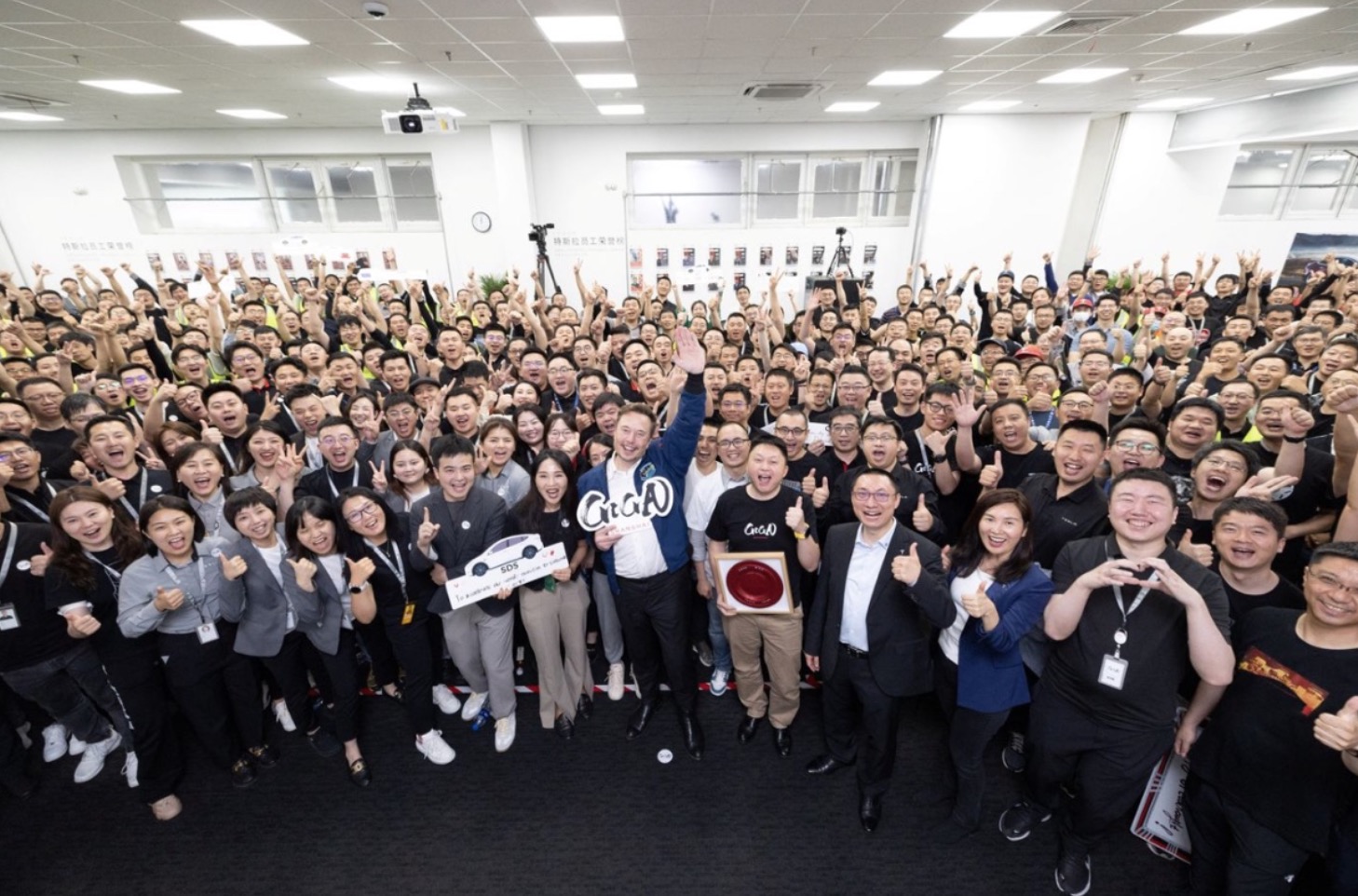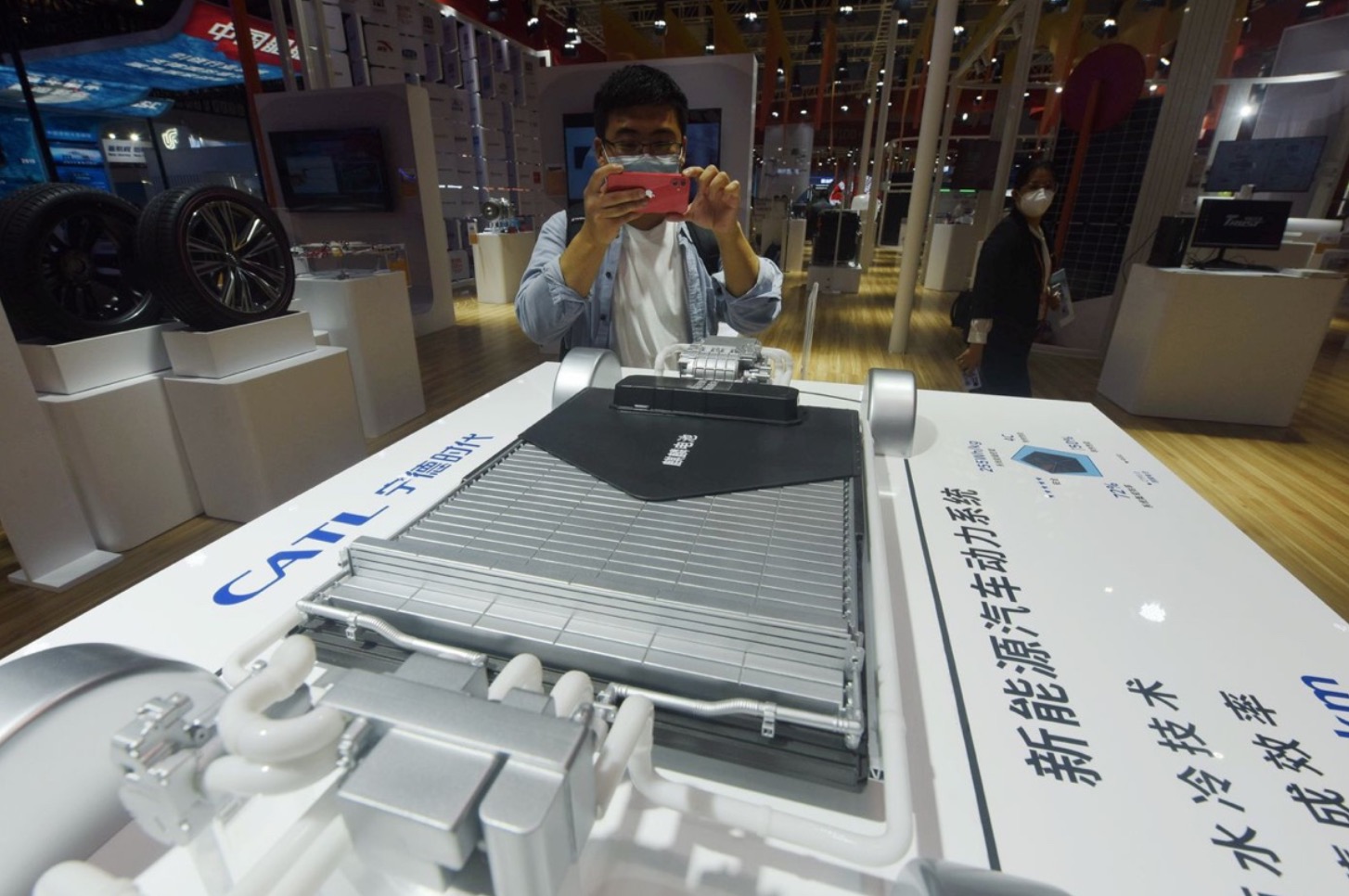07 Jun The Wall Street Journal : Elon Musk’s Warm Welcome in China Reflects Tesla’s Role in Building Top EV Market
Media Source : The Wall Street Journal
Chinese officials embrace visiting CEO and talk up business ties despite U.S. tensions
By Yoko Kubota, Raffaele Huang and Selina Cheng
01 JUN 2023
SOURCE: https://www.wsj.com/articles/elon-musk-is-feted-in-china-after-spurring-nations-ev-rised0357921
SHANGHAI—Elon Musk was welcomed enthusiastically by top Chinese officials this week in a visit that demonstrated Tesla’s commitment to the country that it helped push to become a world leader in electric vehicles.
While many American executives are rethinking their relationship with China amid rising geopolitical tensions, Musk took a flurry of meetings and the opportunity to praise the Shanghai factory that Tesla opened more than three years ago, which now accounts for more than half the company’s global output.
Musk told staff during a visit Wednesday that the cars made in Shanghai are “not just the most efficient production, but also of the highest quality,” according to a video posted on Tesla’s Chinese social-media account.
Before flying out of the country on Thursday morning, Musk saw the revamped Model 3 sedan, a yet-tobe- released mass-market version that is being trial-produced in the factory, people familiar with the matter said. Tesla hasn’t refreshed its range for a while and is facing greater competition from Chinese rivals.

China is the world’s largest electric-vehicle market; a Tesla showroom in Shanghai.
PHOTO: CFOTO/ZUMA PRESS
Musk talked on Tuesday with Robin Zeng, chairman of China-based battery maker Contemporary Amperex Technology, known as CATL, over a 16-course dinner at an upmarket Chinese restaurant in Beijing, people familiar with the matter said. The two executives discussed a potential battery project in the U.S., the people said, though with no firm plans agreed.
Musk’s visit drew great interest from internet users in China, where he has celebrity status. Chinese officials used the trip to promote business ties with the U.S., though Beijing has been cracking down on some foreign companies in the name of national security. Authorities have raided due-diligence firms and detained staff, and last month China blacklisted some products from U.S. memory-chip maker Micron Technology.
After China’s Foreign Minister Qin Gang met with Musk on Tuesday, the ministry said Musk had told Qin that Tesla was opposed to decoupling the world’s two biggest economies. Making an analogy to U.S.- China relations, Qin said one must avoid “dangerous driving” and step on the brakes when appropriate. Musk also met China’s top auto industry regulator, the commerce minister and Shanghai’s Communist Party chief.
Musk and Tesla didn’t respond to requests for comment. A Tesla executive reposted the foreign ministry’s statement on her Chinese social-media account.

Tesla CEO Elon Musk waves to the camera on a visit to his company’s factory in Shanghai.
PHOTO: TESLA/VIA REUTERS
Musk is the latest in a long line of American executives to have visited China this year, with the country saying it is open for business after pandemic border controls were loosened. Apple Chief Executive Tim Cook and Pfizer’s Albert Bourla traveled to China earlier this year to meet senior officials and visit local facilities.
Apple is among companies that are seeking to reduce dependence on China amid political uncertainties by diversifying production to countries including India and Vietnam.
Tesla plans new manufacturing plants around the world, but is also doubling down on China, saying in April that it plans to build a second factory in Shanghai to produce its Megapack energy-storage product. Longmooted plans for another auto manufacturing plant in Shanghai, however, haven’t shown any signs of progressing.
Chinese leaders encouraged Tesla to build its first factory, which opened in 2019, to help ignite consumer demand for EVs and provide competition for domestic EV makers that were considered sluggish by Beijing despite years of incentives.
It worked. Exports of Tesla cars from its Shanghai factory to Europe and Asia helped China surpass Japan as the world’s largest vehicle exporter in the first quarter of this year. China is the world’s largest EV market and is growing rapidly as Tesla’s brand appeal helped nudge more consumers to switch from gaspowered cars. A supply chain built around Tesla now feeds a wave of improving homegrown EV makers.
“If you’re China: thank you Tesla for waking up the part of the market which was sleeping, which was retail consumers,” said Bill Russo, founder and CEO of Automobility, a Shanghai-based strategy and investment advisory firm.
Automotive industry executives who long saw China as a follower of global automotive trends now regard it as a trendsetter in electric cars. Foreign carmakers have acknowledged they need to play catch-up. Both Musk and Ford CEO Jim Farley have said that they regard Chinese companies as their biggest rivals in EVs.
Tesla’s benefit to China can be seen through the supply chain it has helped develop. The company has said that its manufacturing in Shanghai had been 95% localized.
Many Chinese EV makers prefer to source from Tesla suppliers because of the perceived halo effect of using makers that meet Tesla’s quality and production standards, people working for those companies said.

A battery system made by China-based CATL is displayed at a Shanghai exhibition in May.
PHOTO: CFOTO/ZUMA PRESS
CATL, the world’s biggest EV battery producer, relies on Tesla for 12% of its revenue and ships batteries to local EV makers such as NIO, XPeng and Li Auto, according to its last annual report.
One supplier of aluminum housings for batteries and motor systems, Ningbo Xusheng Auto Technology, has counted Tesla as its biggest customer for almost a decade. Its share of revenue from Tesla declined to 34% last year from 54% in 2019, as the company supplied more to local EV makers including NIO and China’s top-selling EV maker BYD, according to filings.
Tesla’s manufacturing method has been taken up by Chinese rivals. For the Model Y, Tesla die-casts the car frame in one piece, a manufacturing technique that reduces component use and weight, reducing costs and shortening vehicle assembly time.
The method is now used by a group of Chinese EV makers including NIO and XPeng, people familiar with the matter said. NIO uses the technique on its sedan ET5. It also sources from Tesla’s car-frame supplier, Wencan Group, according to Wencan’s stock-exchange filings.
By stirring China’s EV industry into life, Tesla, with two locally made models, now faces serious challenges from Chinese competitors. Domestic automakers made up 83% of all EVs sold in the country last year, according to the China Passenger Car Association. Tesla’s market share has fallen to 10% last year from around 15% in 2020.

Chinese carmaker NIO’s ET5 sedan, made in part with a manufacturing technique earlier used by Tesla.
PHOTO:QILAI SHEN/BLOOMBERG NEWS
Write to Yoko Kubota at [email protected], Raffaele Huang at [email protected] and Selina Cheng at [email protected]
Copyright ©2023 Dow Jones & Company, Inc. All Rights Reserved.
Appeared in the June 2, 2023, print edition as ‘Musk Feted in China for EV Role’.
↑ Elon Musk’s Warm Welcome in China Reflects Tesla’s Role in Building Top EV Market
SOURCE: https://www.wsj.com/articles/elon-musk-is-feted-in-china-after-spurring-nations-evrise-d0357921



Sorry, the comment form is closed at this time.